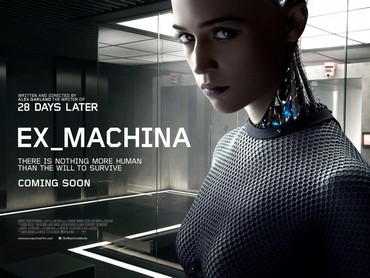 |
| Jude Law and Keira Knightley in Anna Karenina |
Alexei Karenin: Jude Law
Count Vronsky: Aaron Taylor-Johnson
Stiva Oblonsky: Matthew Macfadyen
Dolly Oblonskaya: Kelly MacDonald
Kitty Scherbatsakaya: Alicia Vikander
Konstantin Levin: Domhnall Gleeson
Countess Vronskaya: Olivia Williams
Princess Betsy: Ruth Wilson
Director: Joe Wright
Screenplay: Tom Stoppard
Based on a novel by Leo Tolstoy
Cinematography: Seamus McGarvey
Production design: Sarah Greenwood
Costume design: Jacqueline Durran
Anyone who wants to shake up an established film genre gets my support, even when what they do doesn't quite work. So I'm okay with what Joe Wright tries to do to the historical costume drama and the adaptation of a famous novel in his version of Anna Karenina. Which isn't to say that I think it works. What does work is the attempt by Wright and his screenwriter, Tom Stoppard, to redress the imbalance I've noted in my entries on two previous film adaptations of Tolstoy's novel, the ones directed by Clarence Brown in 1935 and Julien Duvivier in 1948: the neglect of the half of the novel that deals with Konstantin Levin. Domhnall Gleeson, the Levin of Wright's film, is hardly the Levin Tolstoy describes as "strongly built, broad-shouldered," but Gleeson seems to know what the character is about. And he's beautifully matched with Alicia Vikander, who gives another knockout performance as Kitty. Wright and Stoppard use their story as an effective foil for the obsessive, careless love of Anna and Vronsky. That it's only part of Levin's function in Tolstoy's novel, which gives us a view of Russian reform politics and social structure through Levin's eyes, just goes to show that you can't have everything when you're trying to adapt literature to a medium it isn't quite suited for. Wright has also cast brilliantly. As Karenin, Jude Law elicits sympathy for a character that can easily be reduced to a stock villain, as when Basil Rathbone played him in 1935. I also liked Matthew Macfadyen as Oblonsky, Anna's womanizing brother, and it's fun to see Macfadyen and Knightley together in completely different roles from Mr. Darcy and Elizabeth Bennet, whom they played in Wright's 2005 adaptation of Pride and Prejudice. As Anna, Knightley sometimes looks a bit too much like a gaunt fashion model in the Oscar-winning costumes by Jacqueline Durran, and Taylor-Johnson lays on the preening a bit too much in his bedroom-eyed Vronsky, but they have real chemistry together. Seamus McGarvey's Oscar-nominated cinematography makes the most of Sarah Greenwood's production design. But the decision to film the story partly as as if it were being staged in some impossible, dreamlike theater, but also partly realistically, goes astray. It begins as if it were a comedy, with the philandering Oblonsky sneaking around from his wife both onstage and backstage. And throughout the film, reversions from realistic settings to the theater keep jarring the overall tone. There are occasionally some spectacular uses of the set, as when the horses in Vronsky's race run across a proscenium stage, and in his accident, horse and rider plunge off the stage. Here and elsewhere, Greenwood's design is extraordinarily ingenious. But the theater trope -- all the world's a stage? -- never resolves itself into anything thematically satisfying.

